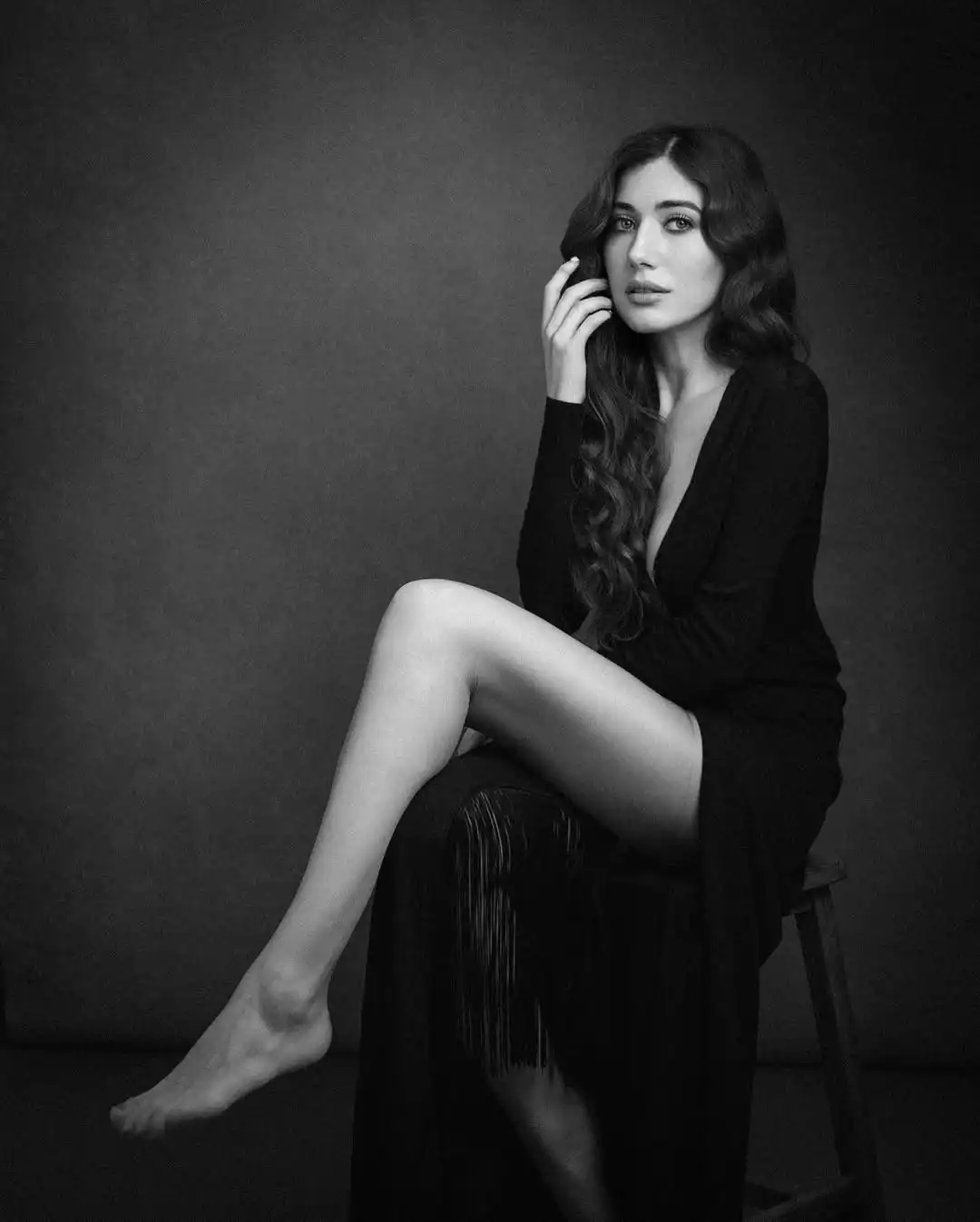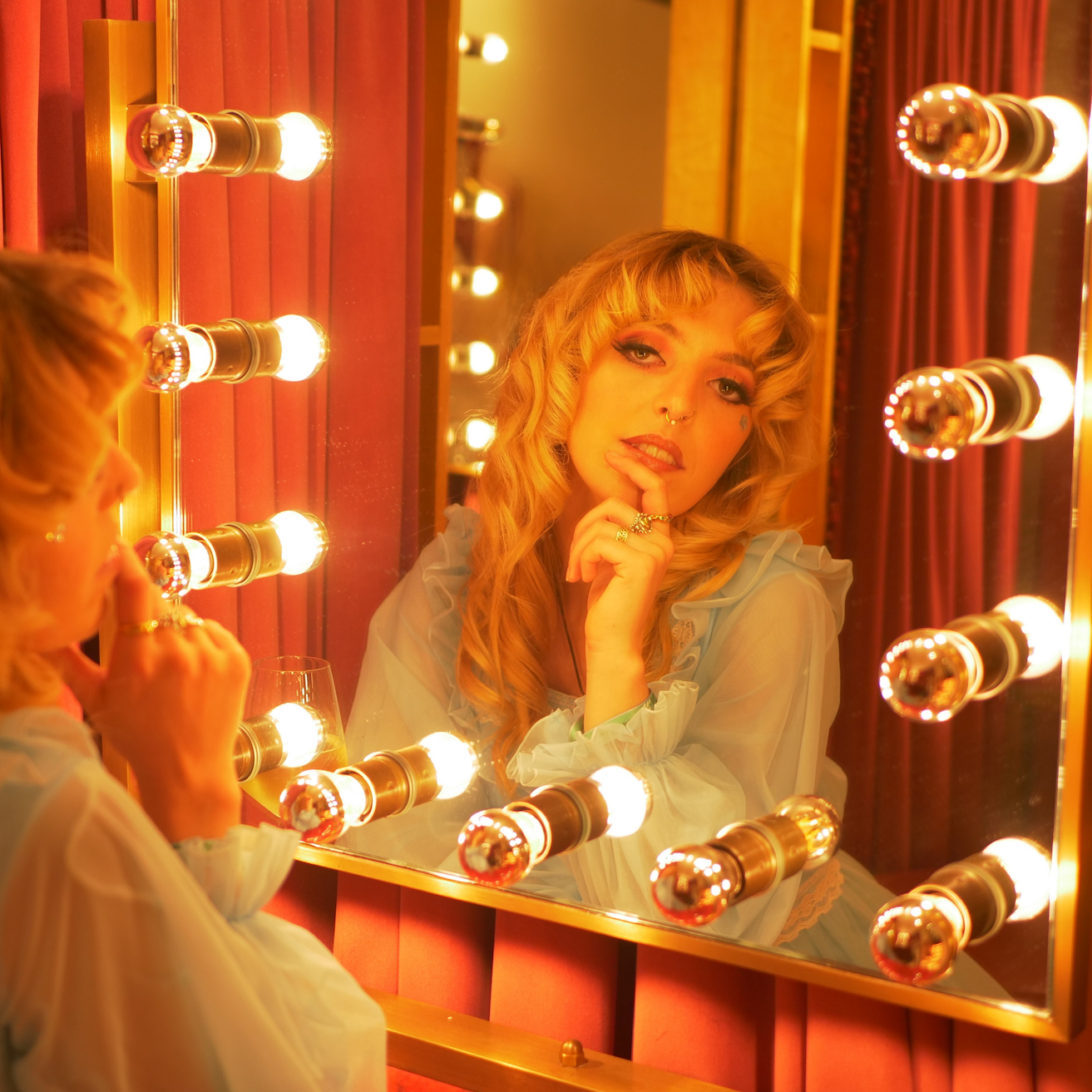We Speak Music
Anna Silverman Shines in Chekhov’s London Revival

The stage is set, the lights dim, and in just a few moments, a timeless classic unfolds. Chekhov in London is not just another adaptation of The Seagull – it is a daring, stripped-down reimagining guided by the singular vision of Victor Sobchak, a director with an uncompromising approach to theatre. This unique production, blending performance, documentary and personal reflection, challenges both actors and audiences to reconsider what it means to tell a story on stage.
At its heart, Chekhov in London follows three interwoven threads: a condensed performance of The Seagull, an intimate exploration of the rehearsal process, and revealing interviews with Victor and his cast. The loose structure allows room for spontaneity, ensuring that the final piece retains the raw energy of live performance. The result is an immersive theatrical experience that defies convention and highlights the director’s unorthodox methods.
It might be a short production , but within those few moments unfolds an intense scenario of The Seagull. The film fuses performance, documentary and behind-the-scenes insights, resulting in a fascinating work that feels at once theatrical and uncomfortably real.
At the center of this version is Anna Silverman in the role of Irina Arkadina. Unlike the more fragile, wide-eyed Nina, Arkadina is fierce, ego-driven and emotionally strong. Her character is a woman of status and pride but yet, beneath the surface, she is quite brittle. The film’s direction leans into that psychological tension, and Anna doesn’t shy away from it and in fact, she walks straight into the fire.
“I knew from the beginning this wasn’t going to be a conventional performance,” Anna reflects. “Victor didn’t want a polished, distant Arkadina – he wanted a woman trapped in her skin, in her legacy, in her relationships. There was no way to play her halfway.”
In this adaptation, Arkadina isn’t simply a supporting figure in her son’s tragedy – she becomes a central pillar of the emotional architecture. The scenes between her, Treplieff and Nina are structured to feel tight and unforgiving. From a visual perspective, the production chose to create a claustrophobic atmosphere, using close framings, low lighting and limited space. This wasn’t accidental – it was intentional.

“The idea was to strip away the distance – both physically and emotionally,” Anna says. “The camera is close. The pauses feel longer. There’s a tension that’s not just acted, it’s felt.”
For Anna, playing Arkadina came with its own set of challenges – not just technically, but emotionally.
“It was important for me to avoid turning her into a villain. She’s not cruel for the sake of it. She’s scared. She’s aging in a World that punishes women for being anything less than eternal. She’s trying to hold on to relevance, to love, to her past power and it’s slipping. I had to meet her there.”
Working with Victor Sobchak is not for the faint-hearted. Known for his intensity and no-nonsense expectations, he pushes actors into emotional terrain that feels almost unsafe—but never without purpose.
“There were moments I left rehearsal feeling completely stripped bare,” Anna admits. “Victor doesn’t settle for performance. He wants truth – even if it’s messy, even if it makes you uncomfortable. Especially if it makes you uncomfortable.”
This meant many scenes were approached with only minimal technical blocking and instead prioritised emotional improvisation. Anna’s performance, while deeply rehearsed, maintains a feeling of spontaneity – it is almost like we are watching her discover Arkadina for the first time, in real time.
Behind the performance was intense internal work. Anna immersed herself not only in Chekhov’s text, but in Stanislavski’s psychological approach, asking not just what Arkadina says – but why she can’t say anything else.
“You have to find where she lives inside you,” Anna says. “For me, it was about understanding what it means to be needed, but not nurtured. What it means to perform not only on stage, but in life.”
She also speaks of the moments when she doubted herself, at some points when Arkadina’s emotional contradictions left her feeling disconnected.
“It’s exhausting to play someone who won’t break, because it means you carry the weight of everything she’s holding in. As an actress, the real challenge was to show the cracks without letting her fully fall apart.”
The film makes the most of its minimalist structure – focusing entirely on the emotional triangle between Arkadina, Treplieff and Nina. There are no sweeping landscapes or dramatic scores. Instead, it’s the silence, the breath between lines, the glance not returned that builds the tension.
“That was Victor’s vision from the start,” Anna explains. “He wanted it to feel like there was no escape – emotionally or physically. Every word, every pause, becomes a battlefield.”

In the end, Anna doesn’t pretend the role left her untouched. Arkadina, she says, revealed more to her than she expected.
“I think the most painful part of playing Arkadina is how much I saw of myself in her fears. It’s easy to admire the beautiful parts of a character, but it’s when you recognise your own shadows in them – that’s when it becomes real.”
Chekhov in London may be brief in length, but it leaves a long emotional imprint. And Anna Silverman’s Arkadina is at its heart: proud and undeniably alive.
_______________________________
Chekhov in London” is a rebellion, a love letter to theatre itself.
Featured photo credit: Tom Trevatt
We Speak Music
EMEREE’s Cinematic Pivot in ‘Eyesore’ from Pop Star to Pop Assassin

EMEREE doesn’t just make music—she curates moments. Her latest single “Eyesore” is a cinematic, sarcastic scorcher that sets a new tone for the rising Australian powerhouse. From the candy-coated production to the horror-tinged DIY music video, EMEREE is creating her own genre: camp pop noir.
The single is a masterclass in balancing artistry with attitude. Co-created with Christian Tjandrawinata, “Eyesore” proves EMEREE isn’t here to play safe. She plays sharp, with razor-lined harmonies and lyricism that stabs with a smile. It’s not just catchy—it’s calculated. The beat bounces, the vocals glide, but it’s the burn in the lines that lingers.
Visually, EMEREE doubles down. The music video is a bloody wink to 80s slasher films, with a narrative as satirical as it is symbolic. She doesn’t just kill her ex on screen—she kills the whole trope. Pop stars often tell stories of heartbreak. EMEREE turns it into performance art.
EMEREE says, “Eyesore” is the anthem for anyone who’s ever dated someone who treated them horribly and just wasn’t hot enough to get away with it.”
EMEREE is making noise for all the right reasons—and with creative backing from CAA and sessions alongside Nile Rodgers and Invisible Men, she’s not just rising. She’s plotting her pop empire. “Eyesore” is both a warning shot and a love letter to anyone who’s ever made revenge their aesthetic.
It’s the start of something bold—and we’re already obsessed.
-

 We Speak Music1 week ago
We Speak Music1 week agoSinger/Songwriter Aro Rose To Release Highly Anticipated New Single “Live Without You” On June 29th, 2025
-

 We Speak Soccer1 week ago
We Speak Soccer1 week agoFrom Small Steps to Big Goals: How Alianna-Reyne Basa Became a Fearless Striker with a Champion’s Heart
-

 We Speak Soccer1 week ago
We Speak Soccer1 week agoBrylee Tagle: Crafting Excellence on the Soccer Field with Vision, Confidence, and a Passion for the Game
-

 We Speak Volleyball1 week ago
We Speak Volleyball1 week agoEyes on the Ball, Heart in the Game: Ryan Jomo’s Volleyball Journey as a Libero Who Refused to Settle for Less

